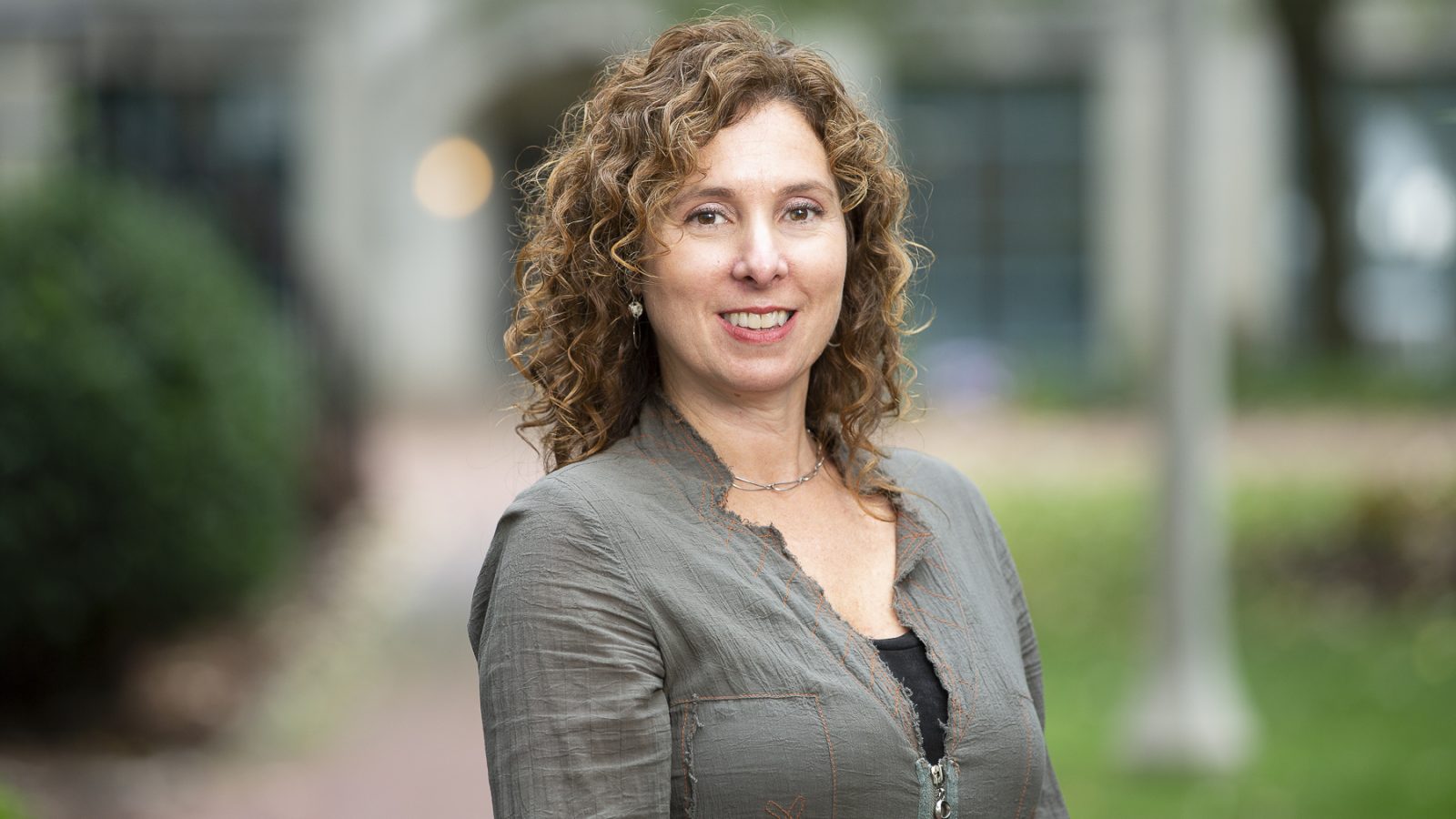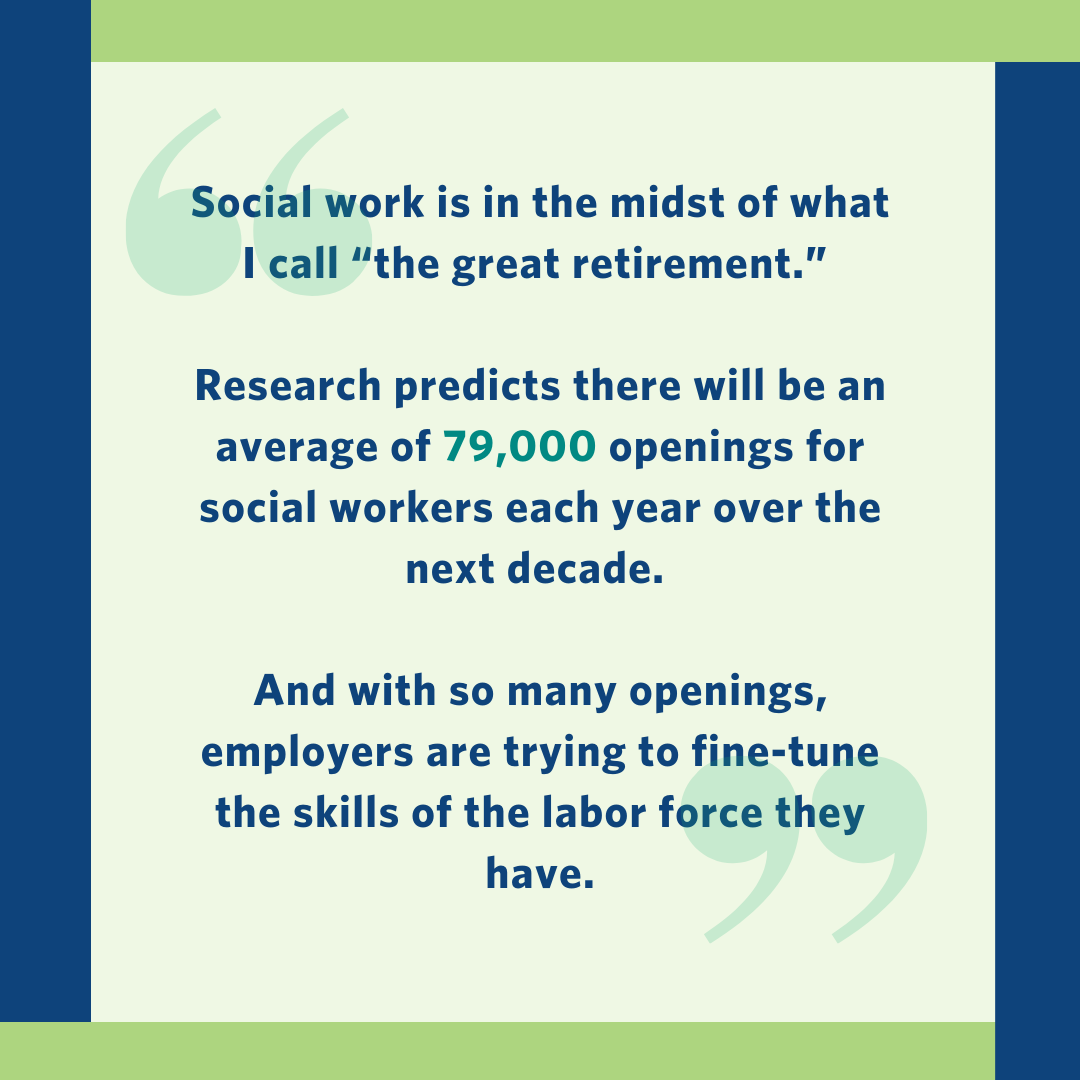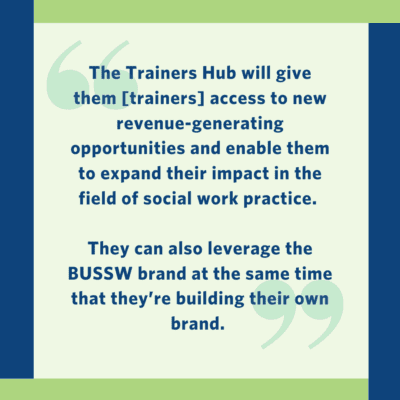News
The Trainers Hub: A Q&A with Its Creator, Network Director Bronwyn Keefe

The Trainers Hub at the Network for Professional Education provides a rare opportunity for BUSSW alumni, faculty, instructors, and field advisors to share their expertise with new audiences. Designed to connect organizations that are looking to develop their workforce with experienced BUSSW practitioners, The Trainers Hub enables you, the practitioner, to share your expertise with health and human service organizations across the country. We spoke with The Network’s Director, Bronwyn Keefe who is also a research associate professor and director of the Center for Aging and Disability Education and Research (CADER), to learn more:
Tell us about the program’s origins.
The Network Director Bronwyn Keefe: The Trainers Hub is one of the key components of The Network for Professional Education, a center at the School of Social Work that brings together two distinct programs under one umbrella: Professional Education Programs (PEP), which provides professional development and postgraduate certificate programs to individuals in the health and human services field; and the Center for Aging and Disability Education and Research (CADER), which provides online training for the national and global workforce that supports older adults and people with disabilities.

After leading CADER for six years and then PEP for three, I realized the two programs shared a vast array of untapped talent in their alumni networks — graduates from all over the country who could serve as subject-matter experts. So, we developed an “umbrella” platform for this collective work called The Network.
Why is workforce development and training so important right now?
BK: Social work is in the midst of what I call “the great retirement.” A record number of baby-boom social workers are retiring, which the pandemic only expedited. Research predicts there will be an average of 79,000 openings for social workers each year over the next decade. And with so many openings, employers are trying to fine-tune the skills of the labor force they have. This may involve upskilling, retraining, or even hiring people that may not have all the skills and training them to do the work.
What are the goals of the Train-the-Trainer Certificate Program?
BK: Just because a person has content expertise, it doesn’t necessarily make them a good trainer. We want to provide trainers a baseline of knowledge that further “credentials” them and develops their skill set. After all, if organizations are spending their valuable resources to work with BUSSW trainers, they are expecting skilled experts. Through our Train-the-Trainer Certificate Program, we can assure that all prospective Network trainers are properly credentialed and ready to represent BUSSW nationally.
Why is the BUSSW affiliation so important to organizations looking to train their health and social services staff?
BK: The Boston University brand is big. Organizations want to work with the BU School of Social Work because it’s a top 10 nationally ranked graduate school. They look to BUSSW as a leader in the field and community-based agencies are always seeking meaningful partnerships with academic institutions. My hope is that the Trainers Hub will provide a platform for this type of partnership and “community of practice” for its membership. Having a one-stop resource like the Trainers Hub will make it much easier for organizations to find the specific support they need. They can easily search trainers by topic on our site and, with the BUSSW name and credentialing, they can be assured of high quality.

How did you go about developing this new curriculum to support the Trainers Hub?
BK: We created an Alumni Training Board — with all BUSSW alumni social workers and instructors — to develop and pilot the certificate program. The first section, Preparing for Success, gets people ready to lead a training and assess an organization’s needs. The second, Curriculum Design and Implementation, is about setting goals and objectives for the competencies they’re trying to teach. The third, Assessment and Evaluation, is about building a feedback loop so they can determine if the training was successful. With a focus on these best practices, we’re asking prospective BUSSW trainers to think about how to set themselves up for a successful training.
How will these trainers benefit from becoming certified members of the Trainers Hub?
BK: The Trainers Hub will give them access to new revenue-generating opportunities and enable them to expand their impact in the field of social work practice. They can also leverage the BUSSW brand at the same time that they’re building their own brand. Trainers will get more mileage nationally from having a BUSSW Network Trainer title, and they can maximize their contribution to our profession by building the competencies of this critical workforce.
Some people may say, “I already have all this training experience.” My feeling is that when it comes to lifelong learning, there’s always a little bit more we can build upon. The free, three-hour certificate, which provides three continuing education credits, will help them become a more multifaceted professional in the end. The true impact will be in creating a strong workforce that can improve the lives of the people we work with and create partnerships with community-based agencies to further their goals. This is the ultimate benefit and goal for the Network Trainers Hub.
BU’s Digital Education Incubator (DL&I) provided funding for this lifelong learning initiative.
For more information on The Network or the Trainers Hub, visit www.thenetwork.bu.edu or email thenetbu@bu.edu.